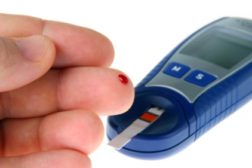Home » Keywords: » NIH
Items Tagged with 'NIH'
ARTICLES
New drug may be effective at treating alcohol problem
Could help smokers, too
September 30, 2016
Fish oil use up, garlic down
Americans are using (different) natural products to boost health
February 19, 2015
Chronic low-back pain research standards announced by NIH task force
Better research may help address health issue that affects millions
December 15, 2014
Scientists determine how the environment contributes to disease
NIH researchers find link to cancer, diabetes, Alzheimer’s
November 26, 2014
Become a Leader in Safety Culture
Build your knowledge with ISHN, covering key safety, health and industrial hygiene news, products, and trends.
JOIN TODAYCopyright ©2024. All Rights Reserved BNP Media.
Design, CMS, Hosting & Web Development :: ePublishing







